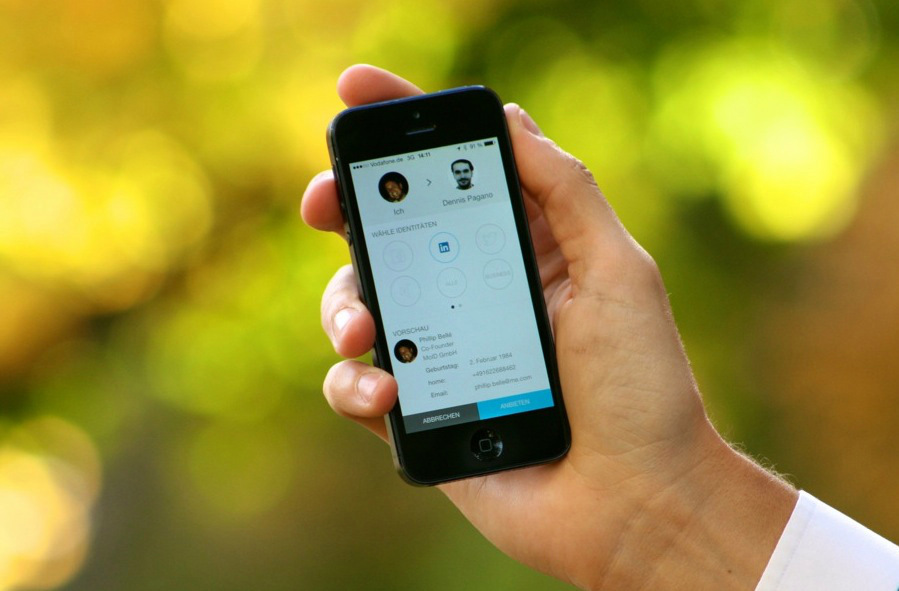

Smartphone apps that help you exchange contact information generally suffer from two things. First, when face-to-face with your contact-to-be, you have to remember to actually use the app. Second, both you and your contact usually need to have the app installed on your smartphones in the first place. Yes, I’m talking about those pesky network effects (it’s in cases like this, a monopoly doesn’t seem like such a bad thing after all). And while Munich, Germany-based MoID does little to address the latter, it has a neat solution to the former.
Using proximity triangulation, similar to something like Airlike, the iOS and Android app attempts to remember people you’ve met (or were in close proximity to) so that you can exchange contact information with them later. Much later, if required.
The idea, says MoID co-founder Phillip Bellé, is that you can leave your phone in your pocket and concentrate on the conversation. Then, once you return home or to the office, you open the app, see a list of people who it believes you’ve conversed with, and begin exchanging contact information.
In other words, should the MoID achieve the required network effects, you’ll never need to ask yourself, “who was that person?”, again.
Other features of the app, which aren’t necessarily unique to MoID, are the ability to keep contact information in sync, should yourself or one of your contacts change contact details, connect directly on supported social networks (Facebook, Twitter, LinkedIn etc.) within the app, or only share specific contact details with specific groups of contacts.
On the issue of network effects, Bellé concedes that this is one of the challenges facing MoID, but says the startup plans to address it in a number of ways.
In a future version, people in your phone’s address book will show up directly in MoID, so you’ll be able to more easily connect or, if needed, send them an invite.
In addition, and this is potentially quite fun, it will be possible to leave your virtual contact card at any place you are. That way, somebody you’ve conversed with can install the app retrospectively, revisit the location, and exchange contact details.
MoID is also exploring ways to provide utility outside of the app. “We have developed a button snippet which can be placed besides any contact on the Internet,” explains Bellé. “Visiting users can simply click the button to push the underlying contact information right into their address book. The button is free, homepage owners profit from visitors having their contact, and we hope to get some free marketing.”
One scenario where MoID could prove to be really useful is when networking at a large tech conference. However, I wondered how the app would distinguish between people you’re standing close to and people you actually talk to. Won’t it product a lot of false-positives?
“You are right. This is also intended for now as we did not yet reach a critical amount of users,” says Bellé. “So, currently we care more about false negatives than false positives. Consequently, we show you as complete a list as possible. But a major portion of our USP lies in the way we sort this list intelligently, using friend-of-a-friend metrics, your contact details, and your social network context.
“As soon as we reach a critical [mass], we will fine tune which encounters will be counted as meetings. For instance, we might define that meetings have to be at least 5 minutes long and narrow down the required distance between two devices.”
Read more : MoID Wants To Help You Remember People You’ve Met


0 Responses
Stay in touch with the conversation, subscribe to the RSS feed for comments on this post.